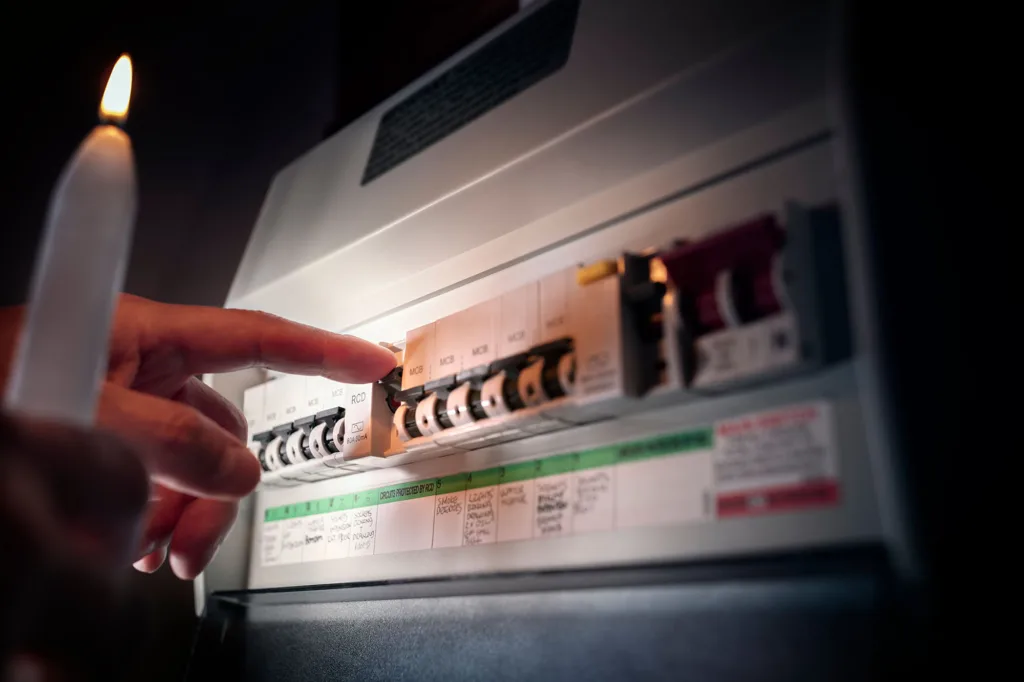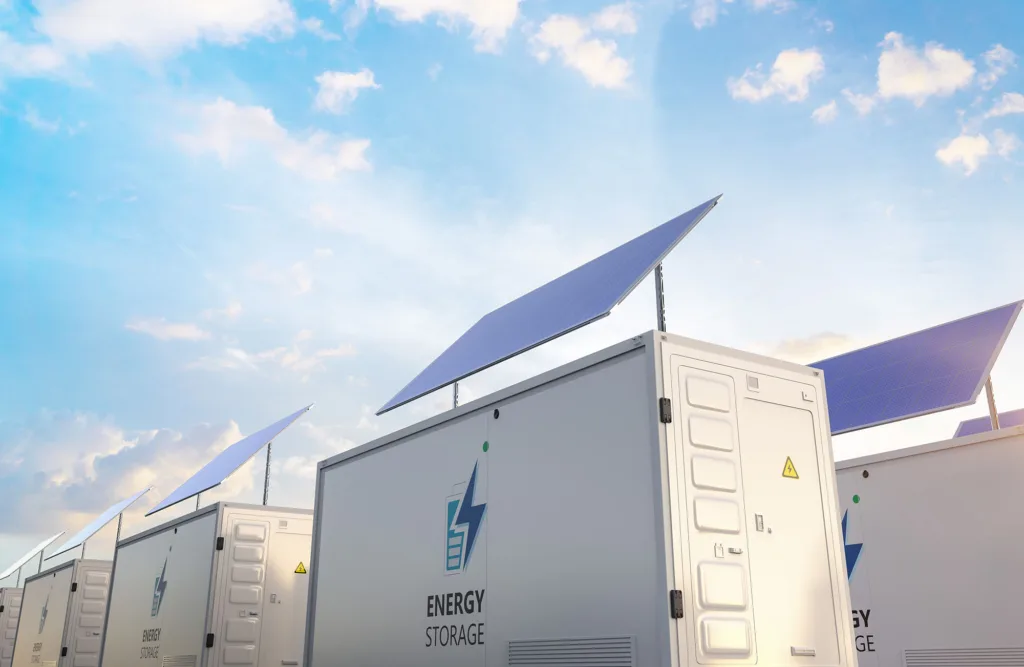Electricity prices in the UK have surged in recent years, leaving many homeowners and businesses searching for ways to cut costs and take control of their energy use. At the same time, renewable energy sources such as solar power are becoming more popular, but without an efficient way to store excess energy, much of it goes to waste. This is where battery storage systems come in.
Battery storage allows you to store electricity when it’s cheap or abundant and use it when needed, reducing reliance on the grid and lowering your energy bills. More than just a cost-saving measure, it also provides backup power, supports the shift to greener energy, and increases self-sufficiency. Let’s explore the benefits in detail.
1. Financial Savings
Reduced Energy Bills
A well-integrated battery storage system can significantly lower energy costs by allowing you to store electricity when prices are low and use it when rates are high. This is particularly useful for homes on variable electricity tariffs, where energy is cheaper during off-peak hours but expensive during peak times.
For homeowners with solar panels, this means using stored solar energy at night rather than drawing from the grid. Businesses can also benefit by shifting their energy use to avoid peak charges, ultimately lowering operational costs. Over time, these savings can offset the upfront cost of the battery storage system, making it a financially sound investment.
Financial Incentives and Government Support
To encourage the adoption of renewable energy and storage solutions, the UK government has introduced several financial incentives. One of these is the Smart Export Guarantee (SEG), which allows homeowners to sell surplus electricity back to the grid, creating an additional revenue stream.
There are also grants and financing options available for installing battery storage, particularly for those combining it with solar panels. These incentives help make battery storage systems more accessible and attractive to UK households.
2. Enhanced Energy Independence
Maximising Self-Consumption of Renewable Energy
For those generating their own electricity, battery storage allows greater control over how and when energy is used. Instead of exporting excess solar energy to the grid for a small return, you can store it and use it when needed, reducing your reliance on energy suppliers.
This is particularly useful in the winter months when solar panels generate less electricity. Rather than buying expensive electricity from the grid, you can rely on stored energy from sunnier days. This significantly increases energy efficiency and helps households become more self-sufficient.
If you’re considering ways to make your home or business more energy-independent, explore renewable energy services for tailored solutions.
Protection from Energy Price Increases
Electricity prices are highly volatile, influenced by factors such as fuel costs, supply shortages, and government policies. With battery storage, you can store energy when prices are low and avoid buying expensive electricity when demand peaks. This helps protect against rising costs and offers greater control over long-term energy spending.
3. Environmental Benefits
Reducing Carbon Footprint
Switching to a battery storage system means reducing reliance on electricity generated from fossil fuels, which remain a significant contributor to carbon emissions in the UK. By using stored renewable energy instead of drawing from the grid, households and businesses can lower their carbon footprint and contribute to national sustainability efforts.
The UK government has set a target to reach net-zero emissions by 2050, and battery storage plays a crucial role in achieving this goal. Widespread adoption will reduce the need for coal and gas power stations, leading to cleaner air and a more sustainable energy system 【source: National Grid】.
Sustainable Living and Long-Term Benefits
Investing in battery storage is a long-term commitment to sustainability. By using stored energy efficiently, homes and businesses can significantly reduce their reliance on non-renewable energy sources. When paired with solar panels, this creates a self-sustaining system that reduces waste and promotes greener living.

4. Backup Power During Outages
Reliable Electricity Supply
Power outages can be disruptive and, in some cases, costly. Businesses can suffer losses due to downtime, while households may face inconvenience and safety risks, especially during extreme weather. A battery storage system ensures that essential appliances like lighting, refrigeration, and heating continue running during blackouts.
For businesses, having a backup power source can prevent operational disruptions. In sectors such as healthcare, data management, and manufacturing, a stable power supply is crucial, making battery storage a worthwhile investment.
Improved Home and Business Resilience
Rural areas often experience more frequent and prolonged power cuts due to their distance from power stations. With a battery storage system, homes and businesses in these areas can maintain power even when grid failures occur. This ensures comfort, safety, and efficiency regardless of location.
5. Regulations & Safety Considerations
Understanding Electrical Installations
A battery storage system must be installed correctly to ensure safety and efficiency. Electrical connections, ventilation, and positioning all play a role in the system’s performance. Understanding how battery systems integrate with existing electrical setups is key to a successful installation.
If you’re new to electrical installations, check out our guide on understanding electrical symbols to familiarise yourself with key components.
Compliance with UK Safety Standards
Battery storage installations must adhere to strict UK regulations. The Health and Safety Executive (HSE) has guidelines on handling lithium-ion batteries safely, ensuring they don’t overheat or pose fire risks. Professional installation and regular maintenance are crucial to meeting these standards.
FAQs
1. How long does a battery storage system last?
Most battery storage systems last between 10 and 15 years, with lithium-ion batteries being the most commonly used due to their efficiency and longevity. Regular maintenance and proper usage can help extend their lifespan.
2. Can I install battery storage without solar panels?
Yes! Battery storage can be used even if you don’t have solar panels. Some users charge their batteries from the grid during off-peak hours when electricity is cheaper and use stored energy when rates are higher. This strategy can still lead to cost savings.
3. Is battery storage worth the investment?
For many UK homeowners and businesses, battery storage is a cost-effective long-term investment. While there’s an initial upfront cost, the savings on energy bills, financial incentives, and protection from rising energy prices make it worthwhile over time.
Conclusion
Battery storage is a powerful tool for reducing energy costs, increasing self-sufficiency, and contributing to a cleaner environment. With government incentives, advanced technology, and greater affordability, more UK homes and businesses are investing in battery storage solutions.
If you’re ready to explore how battery storage can benefit you, speak to the experts at Wave Electrical Solutions for professional guidance and installation.










